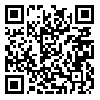BibTeX | RIS | EndNote | Medlars | ProCite | Reference Manager | RefWorks
Send citation to:
URL: http://annbsurg.iums.ac.ir/article-1-223-en.html
In medical literature, studies are divided into two categories; experimental and observational settings. Experimental studies, entitled randomized controlled trials could test the relationship between exposure and outcome experimentally via control group and random allocation. Observational settings include either analytical or descriptive studies. Descriptive studies consist of case reports and case series that are helpful in present the experience of a case or a series of cases with similar diagnoses in detail which results in hypothesis generation. Cross-sectional studies, as analytical designs, are not capable to survey the temporality of exposure and outcome as simultaneously exposure and outcome status are measured. In case-control studies, subjects follow back from outcome to exposure. The rare diseases are recommended to study using case-control setting to save expenses and time. Both exposure measurement and patient selection is before disease detection in cohort studies. Therefore, they are inefficient for rare diseases or diseases with long latency. Cohort studies are time consuming with high cost and loss to follow-up. This paper elaborately reviews the features, advantages, and disadvantages of different types of observational and experimental studies.
Received: 2018/01/3 | Accepted: 2018/02/25 | ePublished: 2018/02/15
| Rights and permissions | |
 |
This work is licensed under a Creative Commons Attribution-NonCommercial 4.0 International License. |





